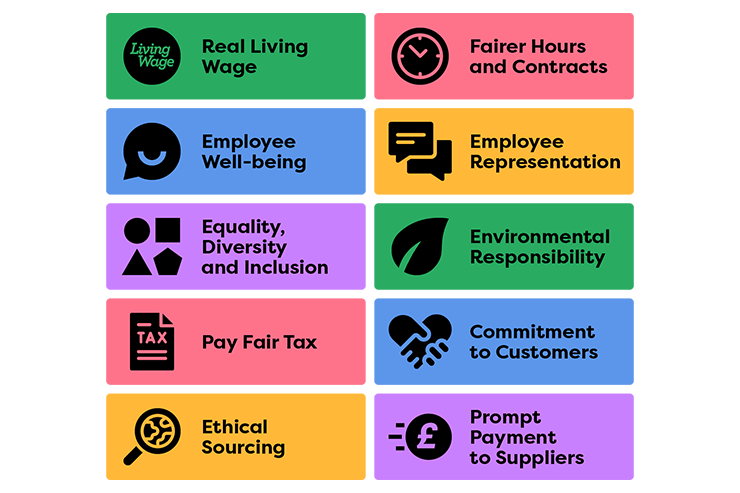The Good Business Charter was designed with members of the general public in mind!
We are founded by retailer Julian Richer – and he knows that people do care about shopping with responsible businesses – but they often don’t know who is behaving responsibly … and who is not!
Which is why the GBC was launched – to solve that problem. To be a clear signpost to those organisations that are walking the walk, not just talking the talk. Who are doing the specific, practical things that show they are caring about people and planet.
The Good Business Charter is a clear indicator that differentiates those organisations that can commit to our 10 components from those who cannot.
What can you do?
We want to raise the bar on business behaviour, we want places where the GBC’s principles are championed, we want to help people make the right choices when it comes to working for, donating to, supplying and shopping with different organisations.
If you want to get involved in our mission, here is what you can do to help:







